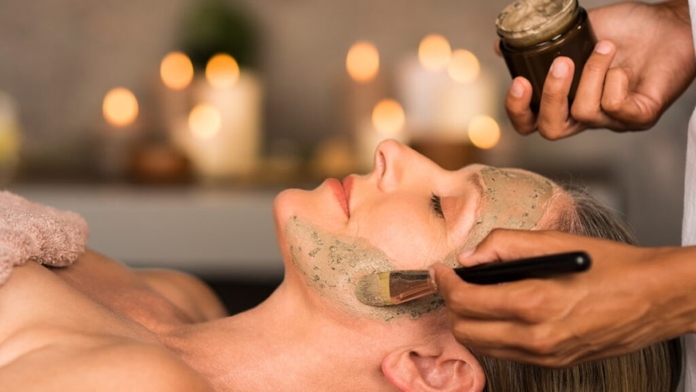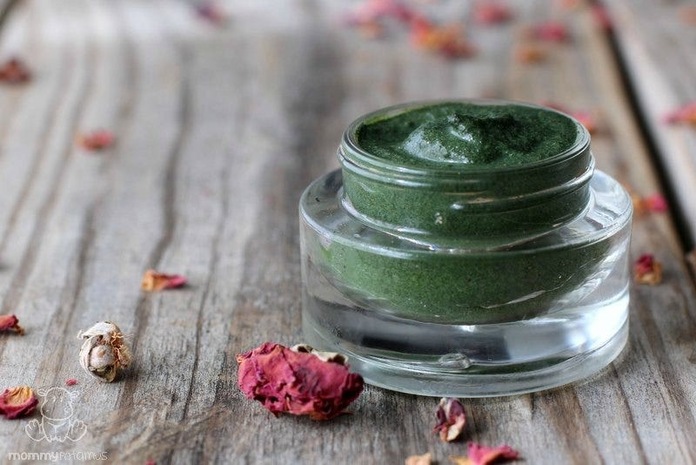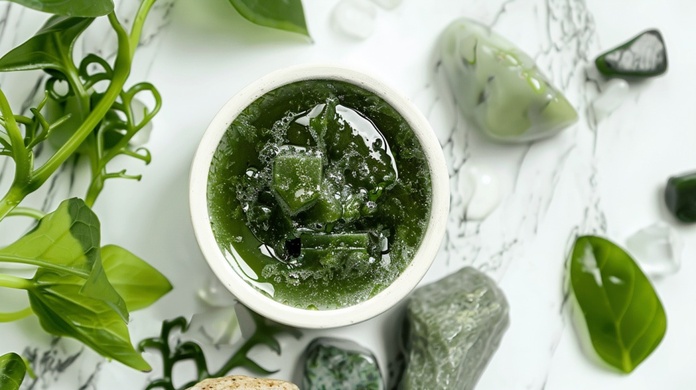In the vast world of skincare ingredients, few are as various and powerful as seaweed. This marine wonder has been utilized for ages in different cultures due to its numerous health and beauty advantages. Ranging from its moisturizing properties to its anti-aging impacts, seaweed provides a wealth of benefits for your skin. Let’s thoroughly explore the realm of seaweed and unveil why it’s increasingly essential in contemporary skincare regimens. The Benefits Of Seaweed For Skin You’ll Wish You Knew About Earlier
What is Seaweed?
Seaweed, also known as marine algae, is a fascinating plant-like organism found flourishing in the ocean. From tiny phytoplankton to towering kelp forests, there is a diverse array of seaweed species thriving in marine environments. These oceanic plants can be categorized into three main groups based on their pigmentation: brown algae (Phaeophyceae), red algae (Rhodophyceae), and green algae (Chlorophyceae).
For thousands of years, seaweed has been deeply intertwined with human life, particularly in coastal regions. It has been utilized for a variety of purposes including food, medicine, and even as a natural fertilizer.
More recently, the beauty industry has recognized the incredible properties of seaweed, leading to a surge in the use of seaweed-based skincare products. Growing in the mineral-rich waters of the ocean, seaweed is enriched with a wide array of nutrients such as vitamins, minerals, amino acids, and antioxidants.

Why Use Seaweed In Skincare?
The utilization of seaweed in skincare is an age-old practice that has been an integral part of the beauty regimens in various coastal cultures for countless generations. A prime example of this is Japan, where seaweed has been incorporated into baths for its skin-enhancing effects, a technique known as “thalassotherapy”.
The immense value of seaweed in skincare has been substantiated by modern scientific research, validating what traditional wisdom has long underscored: seaweed is a treasure trove of skin-nourishing benefits. So, why has seaweed reached such a prestigious status as a sought-after skincare ingredient? Here are the reasons:
1. Abounding in Nutrients: Seaweed is teeming with skin-revitalizing vitamins (A, B, C, E), essential minerals (iodine, zinc, magnesium), and amino acids, providing unparalleled nourishment to the skin.
2. Hydration: Varieties of seaweed have the remarkable capacity to retain up to 1000 times their weight in water, making them exceptional natural moisturizers.
3. Antioxidant Strength: Seaweed harbors rich antioxidants that shield the skin from the harmful effects of free radicals and environmental aggressors.
4. Anti-Inflammatory Properties: Many types of seaweed possess anti-inflammatory properties, which can effectively soothe irritated skin.
5. Detoxification: Seaweed aids in the extraction of impurities from the skin, making it an exceptional choice for detoxifying and purifying the skin.
6. Sustainability: As a swiftly renewable resource, seaweed represents an environmentally friendly option for skincare ingredients.

The Benefits Of Seaweed For Your Skin
Hydration
An outstanding benefit of seaweed for the skin is its remarkable moisturizing properties. Various types of seaweed, specifically brown algae such as kelp, contain alginates – substances that can soak up water up to 200-300 times their mass. When administered to the skin, these alginates create a protective layer that retains moisture.
Additionally, seaweed is abundant in humectants like glycerin and hyaluronic acid. These substances draw moisture to the skin, aiding in maintaining optimal hydration levels. This makes products containing seaweed ideal for all skin types, particularly for dry or dehydrated skin.
The moisturizing impact of seaweed extends beyond superficial hydration. By enhancing the skin’s ability to hold water, seaweed helps fortify the skin barrier, decreasing moisture loss and maintaining the skin’s plumpness and suppleness.
Nourishment
Seaweed is frequently labeled as a “superfood” for the skin, and with good cause. It is loaded with a diverse range of nutrients that nourish and promote skin health:
- Vitamins: Seaweed contains vitamins A, B, C, and E, which play vital roles in skin health. Vitamin A encourages cell renewal, vitamin C boosts collagen production, and vitamin E provides protection against oxidation.
- Minerals: Abundant in minerals such as zinc, magnesium, and iodine, seaweed aids various skin functions. For example, zinc assists in wound healing and regulates oil production.
- Amino Acids: These foundational components of proteins are essential for maintaining skin structure and facilitating repair processes.
- Omega-3 Fatty Acids: These beneficial fats aid in maintaining skin flexibility and decreasing inflammation.
This concentration of nutrients makes seaweed a great ingredient for overall skin health, supplying the skin with the essential components it requires to operate optimally.
Antioxidant Protection
One of the most significant advantages of seaweed for the skin is its strong antioxidant properties. Seaweed consists of numerous antioxidants, including:
- Fucoxanthin: A carotenoid found in brown algae proven to have powerful antioxidant effects.
- Polyphenols: Plant compounds possessing formidable antioxidant and anti-inflammatory properties.
- Vitamin C: A well-known antioxidant that also boosts collagen production.
- Vitamin E: Another potent antioxidant that assists in shielding cell membranes.
These antioxidants function to neutralize free radicals unstable molecules capable of damaging skin cells, leading to premature aging. By protecting against oxidative stress, seaweed helps prevent the breakdown of collagen and elastin, maintaining the skin’s firmness and youthful appearance.
Furthermore, the antioxidants in seaweed can help safeguard the skin from environmental stressors such as pollution and UV radiation, major contributors to skin aging.
Anti-Inflammatory Properties
Inflammation is the underlying cause of many skin problems, such as acne and rosacea. Seaweed, especially red and brown algae, has been discovered to possess significant anti-inflammatory properties. The anti-inflammatory effects of seaweed are due to various compounds:
- Fucoidan: A type of polysaccharide in brown seaweed with powerful anti-inflammatory effects.
- Omega-3 fatty acids: Known for their anti-inflammatory properties in the body, including the skin.
- Polyphenols: Plant compounds that can decrease inflammation and oxidative stress.
These anti-inflammatory properties make seaweed beneficial for a variety of skin conditions. It can help calm irritated skin, reduce redness, and potentially alleviate inflammatory skin conditions such as eczema or psoriasis symptoms.
Improves Skin Tone & Texture
Seaweed can do wonders in enhancing overall skin tone and texture. This is because of several factors:
- Exfoliation: Certain types of seaweed, like Irish moss, contain gentle exfoliating properties that can assist in eliminating dead skin cells, revealing smoother, brighter skin underneath.
- Mineral content: The high mineral content in seaweed, particularly iodine, can assist in improving skin metabolism and promoting cell turnover.
- Hydration: By enhancing skin hydration, seaweed helps plump up the skin, reducing the appearance of fine lines and wrinkles.
- Detoxification: Seaweed’s ability to remove impurities can help unclog pores, resulting in a clearer, more refined skin texture.
Regular use of seaweed-based skincare products can lead to smoother, more even-toned skin with a healthy, radiant glow.
Detoxification
Seaweed possesses remarkable detoxifying properties, making it an exceptional ingredient for purifying the skin. When applied topically, seaweed can aid in extracting toxins and impurities from the skin. This detoxifying effect is mainly due to the high mineral content of seaweed, particularly iodine.
These minerals stimulate skin metabolism and promote the elimination of toxins. Additionally, the alginates in seaweed can attach to toxins, assisting in their removal from the skin.
The detoxifying properties of seaweed are particularly advantageous for oily or acne-prone skin. By eliminating impurities and excess sebum, seaweed can help prevent clogged pores and breakouts.
Skin Brightening
Seaweed can help achieve a more radiant complexion in various ways:
- Vitamin C: Numerous seaweed varieties are abundant in vitamin C, a recognized agent for brightening the skin that can aid in reducing dark spots and evening out skin tone.
- Niacinamide: Certain seaweeds contain niacinamide (vitamin B3), which has been proven to lessen hyperpigmentation and enhance skin clarity.
- Exfoliation: The mild exfoliating characteristics of select seaweeds can assist in eliminating dull, dead skin cells, unveiling brighter skin beneath.
- Enhanced circulation: Seaweed can aid in boosting blood circulation in the skin, resulting in a healthier, more radiant complexion. Regular inclusion of seaweed in your skincare regimen can contribute to a more luminous, evenly toned complexion.
Wound Healing
Seaweed has historically been utilized in many societies to stimulate wound healing, and contemporary research is commencing to authenticate this application. The wound-healing attributes of seaweed can be attributed to several factors:
- Zinc content: Seaweed is abundant in zinc, a vital mineral for wound healing and skin repair.
- Vitamin C: This vitamin is indispensable for collagen synthesis, an essential component of the wound healing process.
- Anti-inflammatory properties: By diminishing inflammation, seaweed can accommodate the healing process.
- Antimicrobial effects: Certain seaweed types have been found to possess antimicrobial properties, which can aid in preventing infection in wounds. While further research is required, these attributes suggest that seaweed may be advantageous for minor skin injuries and overall skin repair.
Protection from the Sun
Even though seaweed cannot be a substitute for your regular sunscreen, it does provide some defense against sun damage:
- UV-absorbing substances: Certain seaweed varieties contain substances that can absorb UV radiation, offering a level of natural sun protection.
- Antioxidants: The powerful antioxidants in seaweed can safeguard the skin from damage caused by UV-induced free radicals.
- Anti-inflammatory properties: The anti-inflammatory properties of seaweed may aid in soothing sun-exposed skin.
Incorporating seaweed into your skincare, in addition to proper sun protection measures, might help shield your skin from the harmful effects of UV radiation.
Reduction of Cellulite
Although further research is necessary in this field, some studies indicate that seaweed may assist in reducing the visibility of cellulite:
- Enhanced circulation: Seaweed has the ability to enhance blood flow, which may contribute to reducing the appearance of cellulite.
- Detoxification: The detoxifying properties of seaweed might aid in eliminating toxins that lead to cellulite formation.
- Toning effects: Certain types of seaweed can help enhance skin elasticity, potentially reducing the puckered appearance of cellulite.
While not a miraculous remedy, integrating seaweed into your body care routine could potentially lead to smoother-looking skin.

How To Include Seaweed In Your Skincare Routine?
Below are multiple ways to incorporate seaweed into your skincare routine:
- Start your regimen with a gentle yet nourishing facial cleanser that contains seaweed extract. This will help to cleanse your skin thoroughly while providing it with essential nutrients.
- After cleansing your face, consider using a toner infused with seaweed. This can help to moisturize and rebalance your skin, leaving it feeling refreshed and revitalized.
- For a concentrated dose of beneficial nutrients, consider incorporating a seaweed-based serum into your routine. This can provide your skin with the extra nourishment it needs to stay healthy and vibrant.
- If deep nourishment and hydration are what you seek, a moisturizer containing seaweed may be the perfect addition to your skincare routine. This can help to replenish your skin’s moisture levels and keep it looking radiant.
- Treat yourself to the purifying and nurturing effects of a seaweed mask. This can help to detoxify your skin and leave it feeling soft, smooth, and rejuvenated.
- For a comprehensive seaweed treatment, consider visiting a spa for a soothing seaweed body wrap. This luxurious treatment can help to detoxify your skin and leave it feeling deeply nourished and pampered.
- To support your skin’s health from within, consider incorporating seaweed supplements into your diet. These can provide internal support for your skin, helping to keep it looking and feeling its best.
Remember to introduce new products gradually and conduct patch tests to ensure that your skin tolerates them well.

Which Skin Types Benefit the Most From Seaweed?
Seaweed offers benefits for all skin types, with specific advantages for the following:
- Oily or acne-prone skin: Seaweed’s detoxifying and oil-balancing properties can help manage excess sebum and prevent breakouts.
- Dry or dehydrated skin: The hydrating properties of seaweed make it particularly beneficial for this skin type.
- Mature skin: Seaweed’s antioxidant and nourishing properties can help combat signs of aging.
- Sensitive skin: Seaweed’s anti-inflammatory properties can soothe and alleviate sensitivity.
- Dull skin: Seaweed’s brightening and detoxifying effects can help revive tired-looking, dull skin.
Conclusion
Seaweed is a powerhouse ingredient that offers benefits for your skin. It is rich in hydration, nourishment, antioxidants, and anti-inflammatory properties, seaweed is a versatile solution for addressing various skin concerns. Whether you’re targeting signs of aging, managing oily skin, or simply aiming for a radiant complexion, incorporating seaweed into your skincare routine can lead to transformative results.
Consistency is key when it comes to reaping the full benefits of seaweed-infused products. Regular use over time can unlock its full potential, helping you achieve the healthy, glowing skin you desire. While seaweed is generally suitable for most skin types, it’s always wise to consult with a dermatologist or skincare professional if you have specific skin conditions or concerns. Assume the great advantages of seaweed for your skin, and you’ll be amazed at the positive impact it can have on your skincare journey.
FAQ
Is it possible for allergic reactions to be caused by seaweed?
Although it is uncommon, some individuals may have allergies to seaweed or iodine. Always conduct a patch test with new products before using them widely.
How frequently should seaweed-based skincare products be used?
The usage frequency depends on the product and your skin’s requirements. Some products can be used on a daily basis, while others like masks may be used 1-2 times per week.
Can fresh seaweed be applied to the skin?
Although it is feasible, it is typically safer and more effective to utilize professionally developed skincare products that contain seaweed extracts.
Does seaweed benefit acne-prone skin?
Yes, the detoxifying and oil-balancing properties of seaweed can be advantageous for acne-prone skin.
Can seaweed be used in place of my regular moisturizer?
Seaweed can be a fantastic addition to your moisturizing regimen, but it is best utilized in conjunction with, rather than as a replacement for, your regular moisturizer.
Is seaweed skincare appropriate for vegans?
The majority of seaweed-based skincare products are suitable for vegans, but always review the complete ingredient list to be certain.
How long does it take to observe results from using seaweed skincare?
Similar to most skincare ingredients, it may take 4-6 weeks of consistent use to notice significant results.
Also, read more about Unlocking the Power of Power Naps: How Short Rest Periods Can Boost Productivity.
